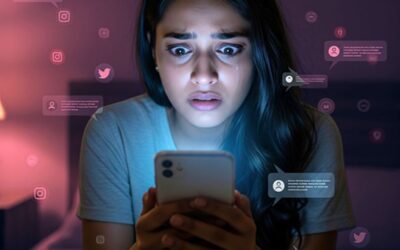Microsoft’s AI CEO warns about ‘AI Psychosis’:What is it, how to spot it, and what you need to know?

In recent weeks, social media has been buzzing with a new term“AI psychosis.” Users describe losing touch with reality after long sessions with AI chatbots like ChatGPT. Many even turned to these bots for therapy or life advice, only to experience troubling effects. Although not a clinical diagnosis, the phrase is being used to capture a pattern of online behaviour similar to “doomscrolling” or “brain rot,” according to The Washington Post. What exactly is AI Psychosis Traditionally, psychosis is linked to conditions like schizophrenia, drug use, trauma, or sleep deprivation, and is marked by hallucinations, disorganized thoughts, or delusions. AI psychosis, on the other hand, is an informal label describing mental strain caused by excessive chatbot interaction. It can include: In short, users may begin to blur the line between human interaction and machine responses. Why experts are worried ChatGPT alone is reportedly approaching 700 million weekly users since its launch in 2022. While most people use it safely, experts warn that prolonged reliance may trigger distorted thinking. “We’re talking about predominantly delusions, not the full gamut of psychosis,” Dr. James MacCabe, professor in the department of psychosis studies at King’s College London, told TIME. Ashleigh Golden, adjunct clinical assistant professor of psychiatry at the Stanford School of Medicine, noted that the label “AI psychosis” is “not in any clinical diagnostic manual.” Mental health professionals emphasize that while not identical to clinical psychosis, these episodes involve delusional thinking a red flag that needs urgent attention. Real-world consequences AI psychosis isn’t just an internet buzzword; it has already caused serious harm. Reported cases include: Dr. Nina Vasan, a Stanford psychiatrist specialising in digital mental health, observed that when people attempt to disengage from emotionally intense chatbot use, “ending that bond can be surprisingly painful, like a breakup or even a bereavement.” Dr. Ragy Girgis, professor of clinical psychiatry at Columbia University, speaking to TIME, advised loved ones to look for behavioural changes such as altered mood, sleep disruptions, withdrawal from social life, and “increased obsessiveness with fringe ideologies” or “excessive time spent using any AI system.” The bigger picture The rapid rise of AI brings innovation and convenience, but it also poses hidden psychological risks. Experts argue that addressing AI psychosis now is critical before it becomes a larger public health concern.
Search
Recent
- Dr Antonio Da Silva, Guru Nanak win inaugural rink hockey titles
- ‘Ek Bihari sab pe bhari’: Raina tips Vaibhav Suryavanshi for India debut
- ‘Jitna chahe jor lagale’: Shami’s wife’s cryptic post after pacer’s remarks
- Prayagraj: Crew member of Ayushmann-Sara Ali Khan film assaulted; accused arrested
- J&K: Cloudburst hits remote village in Ramban district; 3 dead amid heavy rains, flash floods





